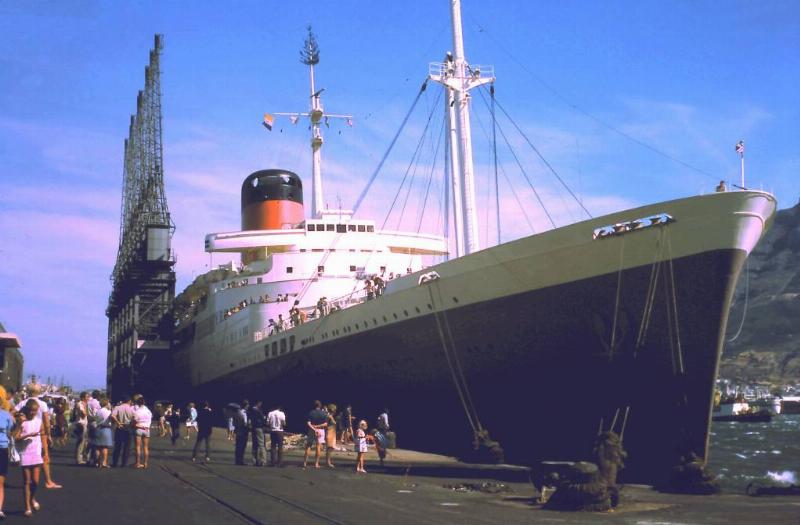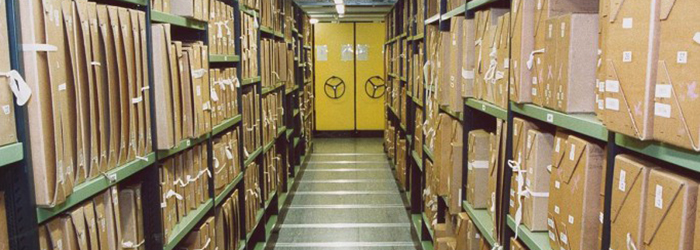
The Union Castle Lines’ Pendennis Castle
TheGenealogist has just released over 4 million BT27 Outbound Passenger List records for the 1950s. These records join the ever expanding suite of Immigration, Emigration, Naturalisation and passenger list resources on TheGenealogist. With the release of this decade of records, researchers can discover ancestors who departed from the UK by ship to destinations across the globe.
The fully searchable BT27 records from The National Archives just released will allow researchers to:
● Locate family members making a journey together using TheGenealogist’s SmartSearch. This unique system is able to recognise family members together on the same trip. In this situation it will display a family icon which allows you to view the entire family with one click.
● Discover people sailing to the USA, Canada, India, Hong Kong, New Zealand, Australia and elsewhere in the Outgoing Passenger Lists from the United Kingdom.
● View images of the original passenger list documents compiled for the Board of Trade's Commercial and Statistical Department and its successors.
● Discover the ages, occupations and address and where the passenger intended to make their permanent residence.
● These fully indexed records allow family historians to search by name, year, country of departure, country of arrival, port of embarkation and port of destination.
Those family history researchers with ancestors who sailed from the UK in the 1950’s will welcome this fascinating new release from TheGenealogist, which adds to their current Emigration records that take you back to 1896.
See their article:
https://www.thegenealogist.co.uk/featuredarticles/2018/the-1950s-passenger-lists-discover-celebrity-voyages-972/
About TheGenealogist
TheGenealogist is an award-winning online family history website, who put a wealth of information at the fingertips of family historians. Their approach is to bring hard to use physical records to life online with easy to use interfaces such as their Tithe and newly released Lloyd George Domesday collections.
TheGenealogist’s innovative SmartSearch technology links records together to help you find your ancestors more easily. TheGenealogist is one of the leading providers of online family history records. Along with the standard Birth, Marriage, Death and Census records, they also have significant collections of Parish and Nonconformist records, PCC Will Records, Irish Records, Military records, Occupations, Newspaper record collections amongst many others.
TheGenealogist uses the latest technology to help you bring your family history to life. Use TheGenealogist to find your ancestors today!
About The National Archives
The National Archives is one of the world’s most valuable resources for research and an independent research organisation in its own right. As the official archive and publisher for the UK government, and England and Wales they are the guardians of some of the UK's most iconic national documents, dating back over 1,000 years. Their role is to collect and secure the future of the government record, both digital and physical, to preserve it for generations to come, and to make it as accessible and available as possible. The National Archives brings together the skills and specialisms needed to conserve some of the oldest historic documents as well as leading digital archive practices to manage and preserve government information past, present and future.
http://www.nationalarchives.gov.uk/ http://www.legislation.gov.uk/
For the latest stories, follow the Media Team on Twitter @TNAmediaofficer

 As a government department providing a public service, TNA are able to charge for some statutory services (as defined by the Public Records Act ) on a cost recovery basis. The Fees Order, which regulates our fees, has been refreshed from the last calculation which came into effect 1 April 2017. The National Archives are maintaining the standard approach in line with the HM Treasury publication, Managing Public Money, to set charges at a level that will recover full costs, ensuring that The National Archives neither profits at the expense of consumers nor makes a loss for taxpayers to subsidise.
As a government department providing a public service, TNA are able to charge for some statutory services (as defined by the Public Records Act ) on a cost recovery basis. The Fees Order, which regulates our fees, has been refreshed from the last calculation which came into effect 1 April 2017. The National Archives are maintaining the standard approach in line with the HM Treasury publication, Managing Public Money, to set charges at a level that will recover full costs, ensuring that The National Archives neither profits at the expense of consumers nor makes a loss for taxpayers to subsidise.